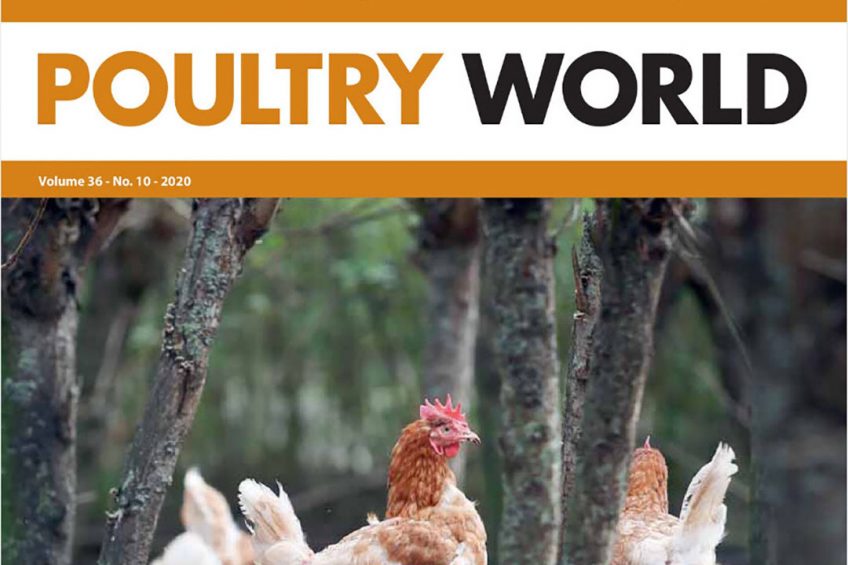Poultry World edition 10 of 2020 is now online

In this edition, Poultry World dives into the details around farm-specific inoculations and why they are becoming more mainstream. We travel to New Zealand where business is booming on a farm where free-range eggs are being sold online, and we discuss why flexibility is key for poultry processors.
View Poultry World’s digital magazine
Interview: “Poultry education has to adapt constantly to the new reality”
Universities worldwide need to professionalise when it comes to poultry education, according to Prof Sjaak de Wit, head of the Integrated Poultry Health Care department in the Veterinary Faculty at Utrecht University, which he combines with his position as senior researcher at Royal GD animal health service.
Designer vaccines for free range poultry
Farm-specific inoculations, also known as an autovaccine, are becoming more mainstream. In close consultation with a veterinarian, the specific colony or colonies of bacteria are analysed in the lab before a tailored vaccine is produced.
View Poultry World’s digital magazine

Selling free-range eggs online
A free-range chicken farmer in New Zealand decided to sell eggs online following a steep drop in demand due to the Covid-19 lockdown. He soon saw consumers return and his business boom.

Riding the waves of Covid-19
A return to some degree of normality is not likely to be seen until 2022-2023, and even then, the pandemic waves and outbreaks will continue to drive the significant changes we are already seeing in broiler supply, market demand, labour, and logistics.
View Poultry World’s digital magazine

EU Parliament decides fate of ‘veggie meat’
In a recent vote, the European Parliament decided not to ban the use of meat-related names – burgers, sausages, and steaks – for plant-based substitutes. European meat and dairy organisations argued that using such terms for plant-based products is misleading.

Fly larvae improve leg health
A recent study used live black soldier fly larvae as an environmental enrichment tool, which triggered intrinsically motivated behaviours that can potentially promote activity and reduce leg problems, thereby improving broiler welfare.
View Poultry World’s digital magazine

New take on tackling litter management
Maintaining good litter quality is a constant challenge. A new take on litter management using the latest probiotic technology in feed can help to support favourable in-house conditions.

Misset International Webinar Week on demand now
Poultry World hosted a number of webinars which focused on a range of pertinent issues affecting the poultry sector. Topics included poultry gut health, antibiotics, and animal welfare.
View Poultry World’s digital magazine

Omega-3 from algae for nutritious eggs
Fish oil is a traditional source of omega-3 but due to a limited supply, a new source is required. Algae are helping to fill the gap and delivers health benefits to egg consumers.

Even low levels of mycotoxins impact broiler performance
A 3-year study has demonstrated the negative effects of low levels of naturally occurring toxic substances, i.e. the mycotoxins found in animal feed, on poultry performance and health.
View Poultry World’s digital magazine

AI prevention and innovative biosecurity measures
The use of lasers is being trialled on a Dutch free-range poultry farm to see if they are effective in removing the threat of avian influenza contamination from wild birds.

View Poultry World’s digital magazine
To access the magazine section, where you will find the 10th edition of Poultry World 2020 as well as other magazines from specialists in the agriculture industry, simply register for free.













